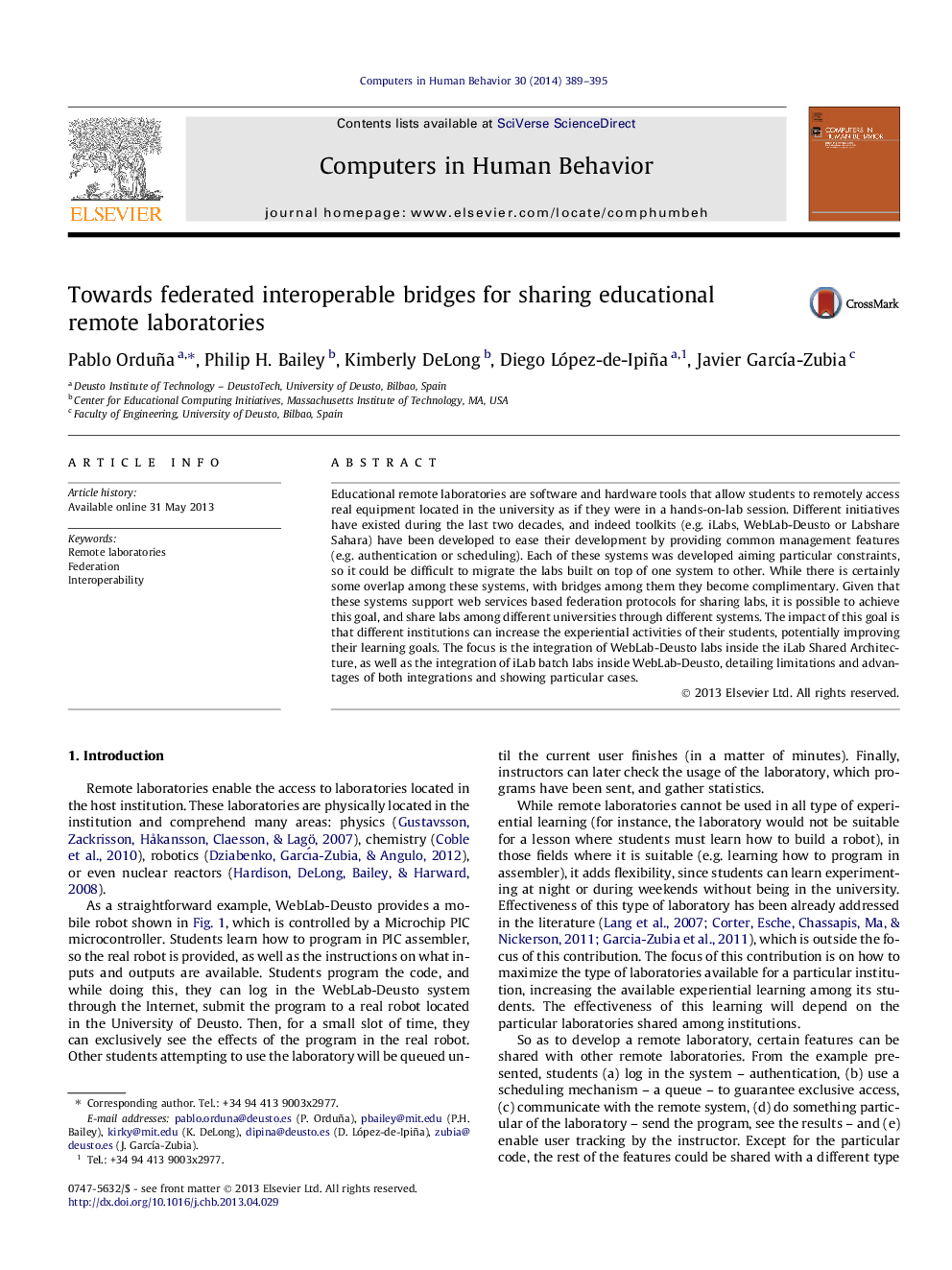| کد مقاله | کد نشریه | سال انتشار | مقاله انگلیسی | نسخه تمام متن |
|---|---|---|---|---|
| 350690 | 618455 | 2014 | 7 صفحه PDF | دانلود رایگان |
• Exploring interoperability bridges in educational remote laboratories.
• Enabling remote laboratory management systems to use other laboratories.
• A case of study is presented with MIT iLabs and WebLab-Deusto.
• The case of study is bidirectional, showing limitations of each system.
Educational remote laboratories are software and hardware tools that allow students to remotely access real equipment located in the university as if they were in a hands-on-lab session. Different initiatives have existed during the last two decades, and indeed toolkits (e.g. iLabs, WebLab-Deusto or Labshare Sahara) have been developed to ease their development by providing common management features (e.g. authentication or scheduling). Each of these systems was developed aiming particular constraints, so it could be difficult to migrate the labs built on top of one system to other. While there is certainly some overlap among these systems, with bridges among them they become complimentary. Given that these systems support web services based federation protocols for sharing labs, it is possible to achieve this goal, and share labs among different universities through different systems. The impact of this goal is that different institutions can increase the experiential activities of their students, potentially improving their learning goals. The focus is the integration of WebLab-Deusto labs inside the iLab Shared Architecture, as well as the integration of iLab batch labs inside WebLab-Deusto, detailing limitations and advantages of both integrations and showing particular cases.
Journal: Computers in Human Behavior - Volume 30, January 2014, Pages 389–395
